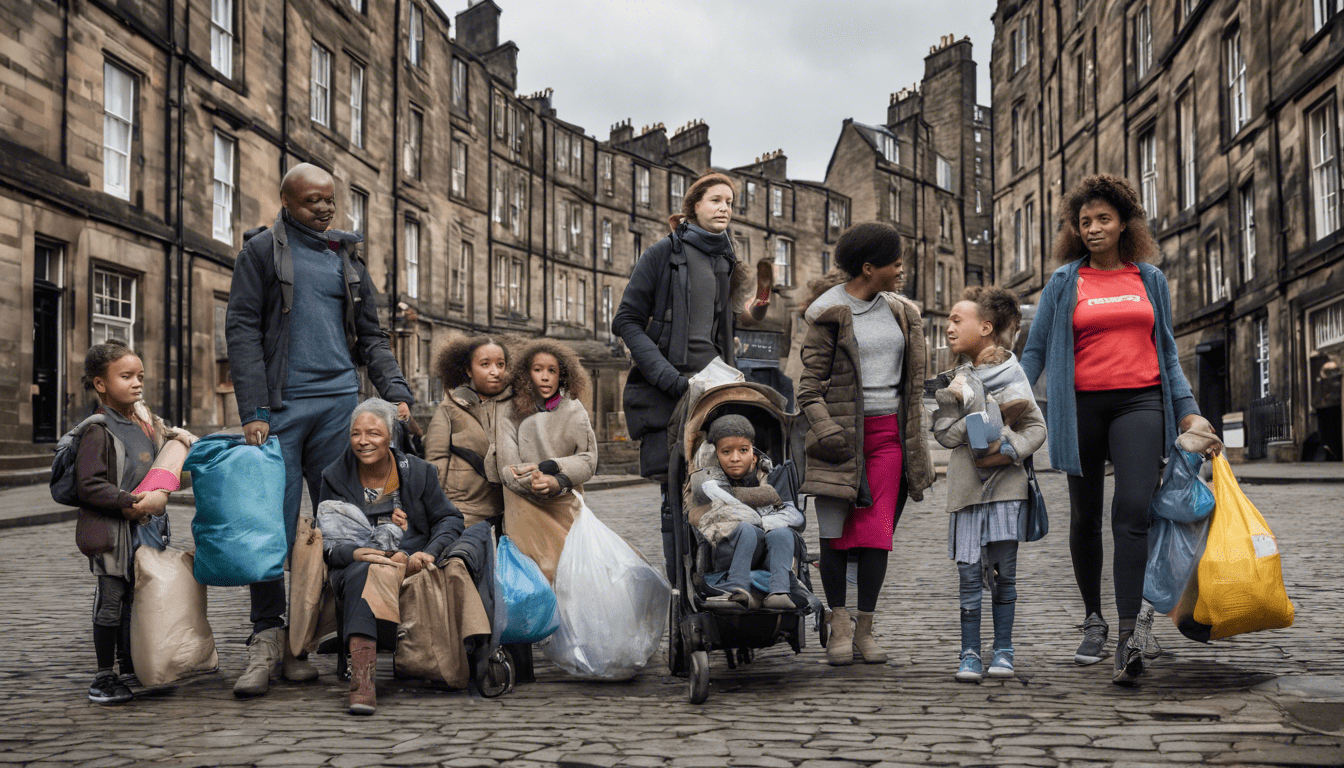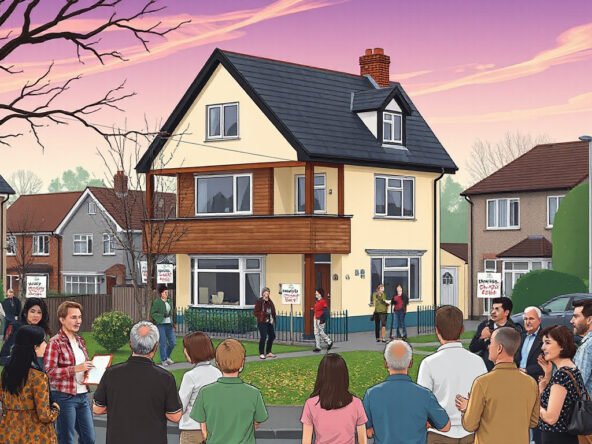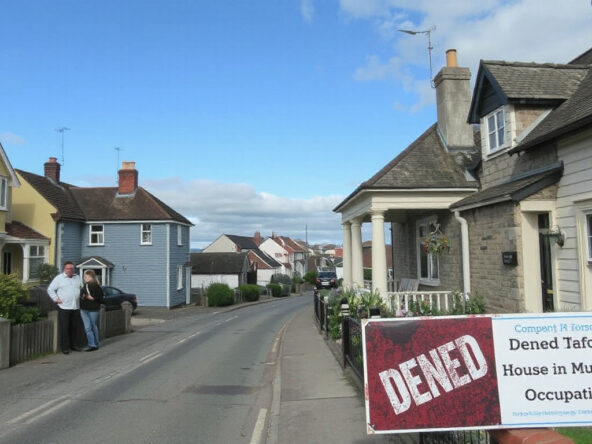In a significant move to enhance housing standards and ensure the well-being of homeless families, the City of Edinburgh Council has announced plans to relocate over 700 individuals currently housed in unlicensed hotels and bed and breakfasts (B&Bs) by the end of November
2024. This decision is motivated by rising concerns surrounding the legality and safety of these accommodations, most of which were utilized during the Covid-19 pandemic to meet a growing demand for temporary housing. As of now, families occupy 28 properties that do not conform to the required licensing regulations for Houses in Multiple Occupancy (HMO). In light of these issues, the council’s approach emphasizes the urgent need to transition residents to lawful living environments, halting new applications for social housing and postponing non-urgent repairs until January 2025 to focus resources on this critical task.
Key Takeaways
- Edinburgh Council is relocating over 700 homeless families from unlicensed hotels by November
2024. - The decision stems from legal concerns regarding the safety and compliance of temporary accommodations provided during the pandemic.
- A temporary pause on new social housing allocations will help prioritize the transition to lawful housing options.
Background of Homeless Accommodations in Edinburgh
The recent decision by the City of Edinburgh Council to relocate hundreds of homeless individuals from unlicensed hotels and bed and breakfasts marks a significant move towards addressing the ongoing homelessness crisis in the city. The council has recognized that many of these temporary accommodations do not meet the necessary licensing regulations for Houses in Multiple Occupancy (HMO), putting the safety and legality of provided shelters into question (Edinburgh Evening News, 2024).
This initiative, which is slated for completion by the end of November 2024, comes after increased scrutiny and legal warnings regarding the funding of non-compliant operators. Currently, over 700 households reside in 28 properties that fall short of legal standards, which could potentially lead to criminal ramifications for the council (The Scotsman, 2024). In response, councillors have agreed to pause new applications for social housing, directing all resources towards the urgent transition of these vulnerable individuals into safer and legally sanctioned accommodations. This pause extends until January 2025, albeit with exceptions made for individuals with disabilities or those in need of urgent hospital discharges (BBC News, 2024).
Moreover, the council is taking steps to expedite the habitability process of vacant properties, aiming to mitigate the shortage of adequate housing options. The temporary accommodation expansion, initiated during the first lockdown in March 2020 to protect public health, saw a jump in usage from 3,570 households in 2020 to over 5,000 in
2024. Notably, while a number of landlords complied with licensing standards, a considerable number failed, exacerbating the situation (The Herald, 2024). This shift signifies an important step for Edinburgh in ensuring that the basic living conditions for homeless individuals are adequately met, moving towards a more structured and compliant housing landscape.
Council’s Strategic Plan for Transitioning Families
With the situation of homelessness in Edinburgh becoming increasingly critical, the council is also implementing strategies to address the underlying issues of housing accessibility and affordability. The decision to stop new allocations for social housing aims to free up resources that can be redirected towards facilitating this significant transition (Edinburgh Live, 2024). Significant financial implications are involved; however, the council is committed to prioritising the health and safety of vulnerable populations over adherence to past allocation practices. The anticipated approach includes comprehensive evaluations of existing housing policies, as well as increased collaboration with private landlords and housing associations to ensure compliance with safety regulations (STV News, 2024). Furthermore, this shift will involve the council’s engagement in community discussions to gather stakeholder feedback, which is vital in creating housing solutions that sustain long-term residency for families, thereby alleviating pressures on temporary accommodations.
Please ask questions via WhatsApp, email, or direct messaging.




